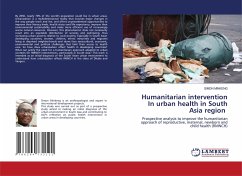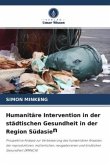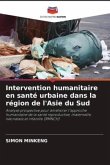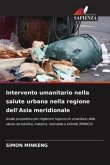By 2050, nearly 70% of the world's population could live in urban areas. Urbanization is a multidimensional reality that involves major changes in the way people work and live, and offers unprecedented opportunities to improve their literacy levels, health status and life expectancy, improve their environmental sustainability and make more efficient use of increasingly scarce natural resources. However, this phenomenon does not necessarily result into an equitable distribution of services and well-being, thus increasing urban poverty relative to rural poverty. Especially in South Asian developing countries, women, children, ethnic minorities and migrants living in deprived neighborhoods and slums face sociocultural, economic, environmental and political challenges that limit their access to health care. So how does urbanization affect health in developing countries? What can justify the need for a humanitarian approach adapted to urban contexts for RMNCH interventions, particularly in South Asia? This work is intended as an initial diagnosis of the South Asian urban environment to understand how urbanization affects RMNCH in the cities of Dhaka and Yangon.
Bitte wählen Sie Ihr Anliegen aus.
Rechnungen
Retourenschein anfordern
Bestellstatus
Storno








